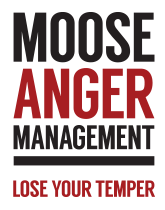Getting to Know Your Inner Dictator
I know it’s hard to admit it. I have felt the shame of reflecting upon how I have acted like a Dictator (which can be male or female, or anywhere in between). It is difficult not to hang your head in those moments, where it felt like if anyone found out what you did, no one would ever want to have anything to do with you ever again: It would be like the end of the world!
In the moment, that is what it felt like, so you were willing to do anything to keep it a secret, avoid it, distract others from it, or deny it, while burying what you did. Perhaps you don’t even remember it… but part of you does. Regardless, it is important that you hold your head up, face this uncomfortable part of yourself, and create peace with it, and yes, even love it.
Most people don’t want to face it, but let’s be honest: Who hasn’t had an angry moment? A moment where the heat rose up from your belly, surged through your chest, throat, and erupted out of you in reaction to hurt, envy, or jealousy and left you lashing out at someone to cause them 10 or 100 times as much pain as they just caused you, be it a close family member, friend, colleague, or just another driver on the road. A moment where you haven’t slept well, been under a lot of stress, had a family member stay with you for a month longer than expected, all the while dealing with a chronic injury that gave you pain repeatedly through each day. In those moments, our inner Dictator rises up and, unless we are really careful, takes us over.
When our inner Dictator takes us over, we over-think things, perhaps obsess. We wake up at three in the morning and tweet about it, or write an e-mail. Writing about what we can’t shake from our thoughts can be a healthy thing to do, unless you send that email or tweet. Then the inner Dictator, Supreme Ruler, or Leader of the Free World, creates drama and chaos in our life, and in the lives of those we touch. Then deceit and manipulation are engaged to point the finger at others, to avoid responsibility. A lot of drama ensues.
When the inner Dictator is left to run us, it reminds me of myself at 4 or 5 years old. I really, really liked dessert (I still do). If I didn’t finish all the food on my plate, dessert was denied. I recall saying in my best commanding 4-year-old voice “I WANT MY DEDIRT RIGHT NOW!!” (I couldn’t pronounce S when I was little.)
The temper tantrum is your angry inner Dictator taking you over (although it did not lead me to get my dedirt). That part of me doesn’t take over so often now that I am half a century past that. Experience and honesty helps.
When we rudely push people out of the way so that we can be in the spotlight, or cut people out of our life if they disagree with us, think in really black and white terms, all or nothing, our inner Dictator is running the show. It is important to get to know this part of you, by feeling how it inhabits your body, how it shows up in your belly, your sternum, as a constriction in your chest, or tension in your throat, or like a vice-like pressure on your head making it difficult to think. That is when The Dictator is being left in charge. You want to become more intimate with this part of you, regardless of how embarrassed, even horrified you are to acknowledge its existence.
When we become defensive and attack rather than listen, let false pride run us rather than stay connected with humility and dignity; when we worry excessively about what others think, rather than connect with our core values and integrity; when we worry about image rather than substance, we are leaving The Dictator in charge.
We have so much to learn from the inner Dictator. It is not a bad part of us, regardless of all that I have written (although politicians who actually act like this, well, that’s another story). It is just the young hurt part of us that was perhaps traumatized by not getting enough attention as a kid, neglected, perhaps even left to feel unloved. What is behind this is usually a combination of shame, pain, fear, or fear of loneliness or abandonment.
The inner Dictator may show up also as a reaction to emptiness, endless unquenchable emptiness that feels like it can never be filled up enough, which is true unless it is acknowledged and addressed as such. Yes, when we reflect upon what happens in our bodies, and how the inner Dictator takes over our thoughts when we are unaware, unconscious, it is hard to love. Love, however, is exactly what it needs.
That love can only occur when we admit to ourselves, and to another, a trustworthy and loving person, that we have acted that way. It is only through courageous exposure, along with taking full responsibility (instead of blame), that we can learn to relate to this part of us in a way that is caring. When this happens the inner Dictator is no longer alone. He or she can feel the love, care, and attention that alters how we relate to the loneliness, fear, and disconnection. The connection that love brings turns the shame into wisdom. You are not alone. We all have an inner Dictator who takes us over at times leaving us acting childishly, selfishly, aggressively, with complete disregard for dignity and the impact of our actions and decisions on others.
So, we have both a wise, aware, conscious, courageous part of us, and its opposite. Get to know how each operates in your thoughts and in your body, which includes your heart and your belly, and everywhere else in you. You might notice that your tone of voice, and body language, are different depending on which is in charge. Most importantly, find a safe person and place to express all this, where no one gets hurt. You are not alone. The inner Dictator can be a great teacher, or a terrible leader. You decide.
Note: Any resemblance to politicians living or dead is strictly coincidental.
Originally published at The Good Men Project





